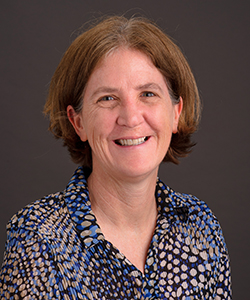Turning 50 is a major milestone, especially when it comes to your health.
“This is an age where unhealthy behaviors might begin to catch up with you, but you still have time to make changes and avoid major health issues down the road,” said Carin Reust, MD, a University of Missouri Health Care family medicine doctor. “This is also an age where we begin recommending certain screenings and immunizations, so be sure to visit your primary care provider soon after your birthday to discuss your health.”

At this appointment, you and your doctor likely will explore the following areas:
- Heart health: “Cardiovascular disease is the leading cause of death for both men and women,” Reust said. “After turning 50, it’s especially important to take heart health seriously and make a few lifestyle changes to reduce your risk.”
Reust said quitting smoking, losing weight and exercising are three great ways to keep your heart healthy.
“Especially if you are overweight, you really need to begin thinking about eating as healthy as you can,” Reust said. “Increase your fruits and vegetables, and only eat some meat and some dairy. Drop the fast food, and only eat sweets every once in a while. Also, try to exercise three or four times a week. You don’t need to begin running marathons. A nice 30-minute walk with your dog will be good for your heart.”
- Colon cancer: Colonoscopies are recommended for men and women at age 50. But if you have a family history of colon cancer, your doctor might have recommended this screening before your 50th birthday.
“If we don’t find any polyps during your colonoscopy, you won’t have to have another one for 10 years,” Reust said. “If we do find polyps, we will remove them and check if they are precancerous. If they are precancerous, we will schedule your next colonoscopy for sooner than 10 years.”
- Shots and blood tests: Your family medicine doctor will make sure you’re up to date on your immunizations — including the shingles vaccination, which is recommended at age 50.
“We would also likely want to run some blood tests to check your cholesterol, blood sugar and more,” Reust said. “If we discover that you have diabetes or high cholesterol, we can prescribe medications and recommend lifestyle changes to help you manage these conditions. It’s great to catch these things when you’re 50, because it is much more difficult to manage them in your 60s or 70s.”
- Breast and cervical cancer: “Though most women are diagnosed with breast cancer in their 60s, we recommend starting your mammograms at age 50,” Reust said. “If your scans are negative, we will ask you to come back for another mammogram in two years.”
Reust also said it’s important for female patients to continue screening for cervical cancer throughout their 50s. This is done by a Pap smear and HPV testing. If you have not been screened for cervical cancer within the past five years, your doctor might recommend doing so during the visit.
“If both tests come back negative and you don’t have a history of abnormal Pap smears, we would repeat the tests in five years,” Reust said.
- Prostate cancer: Male patients might be encouraged to undergo screening for prostate cancer during this visit. The doctor will weigh a number of factors to determine the best plan of action.
“Prostate cancer screening is very dependent on the patient’s family history and his personal preference,” Reust said. “We typically have a long conversation where I help the patient better understand this fairly common cancer, and we go over all the different ways we could screen for it.”
MU Health Care has three family medicine clinics in Columbia, as well as clinics in Ashland, Fayette and Fulton.







